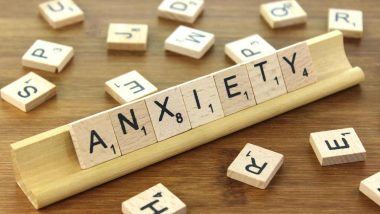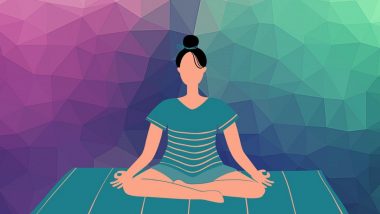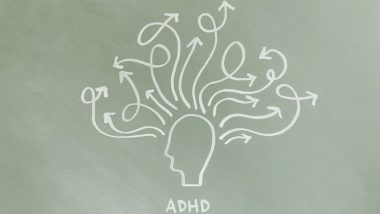Though it is normal to worry about certain life changes, when the worry is chronic, long-lasting, disproportionate, consuming and more than just occasional is requires attention. Besides the foundation of good mental health; adequate good quality sleep, nutritious meals and adequate physical activity, here are five more quick tips to help relieve you from any anxiety.
1. Deep Breathing
Since anxiety has bodily effects such as fast breathing and heart rate, deep breathing helps by reducing the physical symptoms. Focus on your breathing with deep inhales and exhales to re-centre your mind, slow down your breathing and ring your heart rate back to baseline. Anxiety vs Depression: From Physical Symptoms to Similarities in Treatment Styles, Learn About Two Most Common Mental Illnesses.
2. Train Your Brain
Train your brain to rethink and reframe thoughts. Use logic to make sense of the situation at hand. People with anxiety often fixate on worst-case scenario to combat this, remind yourself that feelings are not necessarily facts. Rational thinking can help identify the discrepancies in feelings and facts and therefore help calm you down.
3. Stay in the Present
Try and focus on what’s going on around you, the situation you are in. Actively stop ruminating thoughts of future and past by focusing on what is going on around you. When you find yourself worrying about what is going to happen, reel yourself back into the present and do quick self-check – ins. Ask yourself, “What is happening right now?” Why do I feel threatened?” “Is my response in proportion to the situation?” This will help as a grounding technique to bring you back to present and question your worrisome thoughts. A Tidy House Can Reduce Stress and Anxiety, These Everyday Habits Will Make Your Home a Sanctuary During COVID-19 Pandemic.
4. Stay Away From…
Refrain from consuming caffeine, sugar, alcohol and other substances. Caffeine can cause palpitations, which can mimic symptoms of anxiety and trigger panic attacks. Similarly, sugar too can act as an adrenal stimulant and worsen the situation. Alcohol and other substances may be used as coping mechanisms, but they are cause permanent damage for temporary relief and must therefore be avoided and replaced with healthy coping mechanisms.
5. The 3-3-3 Technique
Use the 3-3-3 technique to block out self-sabotaging thoughts. Look around you and name three things you see, three sounds you hear and then slowly move parts of your body such as your ankle, wrist or shoulders. Use this tip to you control racing thoughts.
If none of these work, remember that talking about your worries, is the first and biggest step to its resolution so find yourself a trusted friend or family member and address you concerns or better still get external help from a trained professional.
(Contributed By: Aviva Damania, Psychologist and Mental Health Specialist from City, University of London. She can be reached out at The Mind Essentials.)
(The above story first appeared on LatestLY on Nov 23, 2020 11:55 AM IST. For more news and updates on politics, world, sports, entertainment and lifestyle, log on to our website latestly.com).













 Quickly
Quickly





















